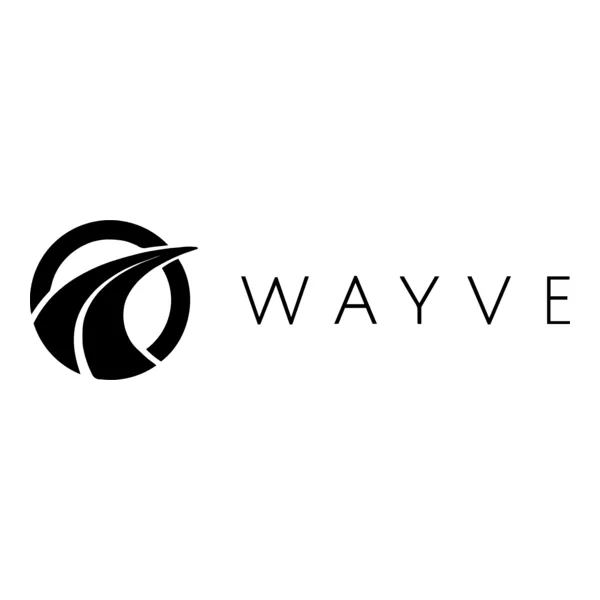
Wayve Bolsters Engineering Leadership to Accelerate Next-Gen Autonomous Driving Technologies
Wayve, a trailblazer in Embodied AI for the automotive sector, has announced the strategic appointments of three seasoned engineering leaders: Rob Flenniken, Uri Wolfovitz, and Dennis Jackson. Their collective expertise in autonomous systems, AI platforms, embedded software, and scalable infrastructure will play a pivotal role in advancing Wayve’s vision of delivering cutting-edge assisted and automated driving solutions on a global scale.
As the autonomous driving sector matures and competition intensifies, Wayve’s expanded leadership team reflects a strong commitment to both technological innovation and practical deployment. The company is positioning itself to lead the transition toward scalable, AI-driven driving systems that can adapt to complex urban environments without the need for pre-programmed rules or HD maps.
Rob Flenniken: Leading the Charge in Vehicle Software Integration
Rob Flenniken joins Wayve as Vice President of Vehicle Software, where he will be responsible for building and maintaining a robust, scalable vehicle software platform. This foundation is essential for enabling rapid iteration of AI models and ensuring seamless integration with the diverse and complex hardware/software ecosystems found in modern vehicles.
Flenniken brings more than two decades of engineering experience across biomedical devices, mobile technology, consumer electronics, and autonomous vehicles. Prior to joining Wayve, he spent three years at Cruise, a leading autonomous vehicle company, where he was instrumental in scaling the company’s Chevy Bolt robotaxi fleet and developing its next-generation AV platforms. His deep technical background and hands-on leadership in embedded systems make him well-suited to lead Wayve’s efforts in vehicle software development.
Uri Wolfovitz: Driving Performance and Production-Grade Platforms
Appointed as Director of Production Software and Optimisation, Uri Wolfovitz will lead Wayve’s development of “middle ground” reference platforms. These platforms serve as the bridge between research prototypes and commercial-grade products—ensuring that innovations in AI and autonomy translate smoothly into reliable, scalable solutions.
Wolfovitz’s career spans over 17 years of contributions to AI, computer vision, and autonomous systems. Most recently, he served as Vice President of Performance Optimisation and Optical Path at Mobileye, one of the most recognized names in autonomous driving technology. His work there focused on enhancing performance at both the hardware and software level to meet the rigorous demands of automotive-grade autonomy.
In addition to his corporate experience, Wolfovitz is also an entrepreneur. He co-founded DeepBlock, a startup that leverages AI to assist real estate developers in identifying and evaluating potential building sites. He previously served as COO and VP of R&D at Sight Diagnostic, where he led the development of AI-powered diagnostic tools. At Wayve, his unique combination of enterprise engineering and startup agility will be instrumental in building scalable, performant systems for real-world deployment.
Dennis Jackson: Steering Development Fleet Systems
Dennis Jackson joins as Engineering Director, where he will oversee Wayve’s Development Fleet Software operations. With over 25 years of experience across medical devices, drones, and autonomous vehicles, Jackson has a strong background in managing embedded systems, user interfaces, and complex testing environments.
At Cruise, Jackson played a key role in leading embedded software development for multiple generations of autonomous vehicles. His responsibilities included both the development and rigorous testing of these systems, ensuring they met the demanding requirements of safety, performance, and scalability.
At Wayve, Jackson will manage the development and maintenance of on-vehicle embedded software, as well as interface solutions used for prototyping, data collection, and internal fleet operations. His mission includes improving the reliability and functionality of the company’s prototypes—an essential part of transforming research into market-ready solutions.
Building the Future of Embodied AI and Autonomy
Wayve’s recent appointments are more than just additions to the team—they reflect a strategic effort to scale the company’s engineering capacity and bring deep industry knowledge to key technical domains. By assembling a team with proven experience in both startups and established players like Cruise and Mobileye, Wayve is reinforcing its position as a leader in AI-driven autonomous mobility.
These leaders will work in tandem to scale the company’s software development processes, improve system integration, and ensure that advanced AI technologies are embedded within robust, production-ready platforms. This is especially important as Wayve prepares for the next phase of growth, which involves expanding partnerships with automakers and deploying its systems in increasingly complex urban environments.
A Vision Backed by Talent and Experience
Silvius Rus, Wayve’s Vice President of Engineering, emphasized the importance of these new appointments:
“We’re thrilled to welcome Rob, Uri, and Dennis to Wayve. Collectively, they bring immense technical depth and cross-disciplinary expertise from across the automotive and engineering sectors. Their experience will be invaluable as we continue to scale our technologies and deliver AI-powered driving systems worldwide. These appointments also reflect Wayve’s growing reputation as a destination for world-class talent eager to solve some of the most complex and exciting challenges in the mobility space.”
Wayve’s strategy is centered around Embodied AI—a paradigm that views intelligence as something that must be learned through interaction with the real world, rather than through pre-programmed rules or simulations alone. By embedding learning-based systems into vehicles and deploying them in real-world environments, Wayve’s technology continuously adapts and improves. The company’s end-to-end deep learning approach allows vehicles to perceive and react to dynamic scenarios in a more human-like way, improving generalization and safety.
Scaling Toward Commercialization
With its new leadership team in place, Wayve is poised to accelerate the commercialization of its AV technologies. This includes not only the development of robust onboard systems but also cloud-based platforms for training and simulation, real-time performance monitoring, and data-driven model refinement. The combined expertise of Flenniken, Wolfovitz, and Jackson will enable Wayve to advance on all of these fronts simultaneously.
As regulators, automakers, and cities seek viable solutions for autonomous mobility, Wayve’s unique approach—combining data-driven AI with practical engineering—positions it as a strong contender in the race to bring safe, reliable self-driving vehicles to roads around the world.
In a competitive landscape increasingly defined by execution as much as innovation, Wayve’s strengthened engineering leadership gives it a critical edge. The company is not only developing smarter AI models—it is building the infrastructure and talent required to deliver those models at scale, in real vehicles, under real-world conditions.







